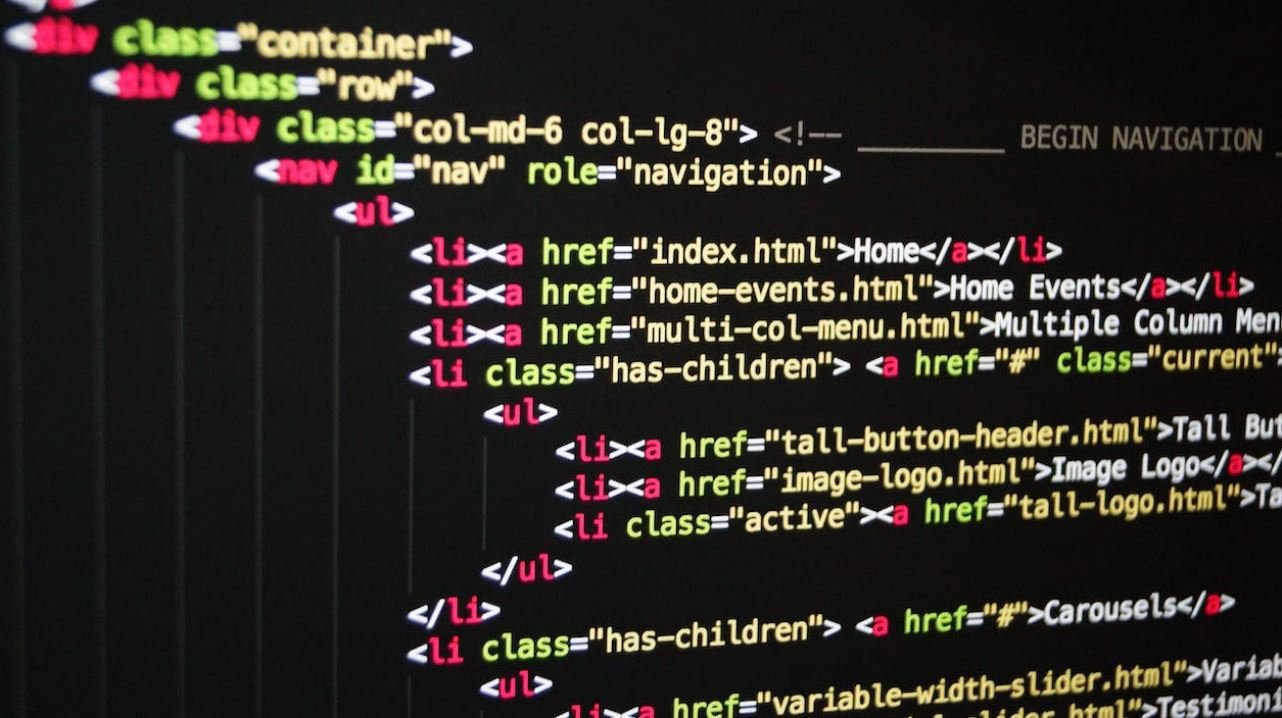AI-Based Social Media Management
Social media has become an integral part of our daily lives, and businesses are increasingly relying on it to connect with their audience. However, managing social media accounts can be a time-consuming and daunting task, especially for companies with a large following. This is where AI-based social media management comes into play. By leveraging the power of artificial intelligence, businesses can streamline their social media processes, improve engagement, and ultimately drive growth. In this article, we will explore the benefits of AI-based social media management and how it is revolutionizing the way businesses approach their social media strategy.
Key Takeaways:
- AI-based social media management utilizes artificial intelligence to streamline social media tasks and improve engagement.
- AI algorithms can identify trends, optimize posting schedules, and even generate content.
- This technology allows businesses to save time, scale their efforts, and make data-driven decisions.
**One of the key advantages of AI-based social media management is its ability to identify trends and patterns**. Traditional social media management requires manual monitoring and analysis, which can be time-consuming and prone to human error. AI algorithms can automatically scan through vast amounts of data, detect trends, and provide valuable insights. By analyzing user behavior and content performance, businesses can gain a deeper understanding of their audience and tailor their social media strategy accordingly.
Another valuable aspect of AI in social media management is its ability to **optimize posting schedules**. Timing plays a crucial role in social media success, as posting at the right time can significantly impact engagement and reach. AI algorithms can analyze historical data, user preferences, and industry trends to determine the optimal time to post. By automatically scheduling posts at the most opportune moments, businesses can maximize their visibility and improve their chances of reaching their target audience.
Creating compelling content is essential for social media success, but it can also be time-consuming and resource-intensive. With AI-based social media management, businesses can leverage **content generation algorithms** to automate the process. These algorithms can analyze existing content, understand the tone and style, and generate new posts that align with the brand’s voice. This not only saves time but also ensures consistent content production and frees up resources for other important tasks.
The Power of AI in Social Media Management
AI-based social media management offers numerous benefits that can transform the way businesses approach their social media strategy. Here are some of the key advantages:
- **Time-saving**: AI automates repetitive tasks, such as scheduling posts and analyzing data, allowing businesses to focus on more strategic activities.
- **Improved targeting**: AI algorithms analyze user data to understand preferences and interests, enabling businesses to deliver more relevant content to their target audience.
- **Enhanced engagement**: By analyzing user behavior, AI algorithms can suggest personalized responses and recommendations, leading to higher engagement rates.
**AI can also help businesses stay on top of emerging social media trends**. With the ever-evolving nature of social platforms, it can be challenging to keep up with the latest trends and changes. AI algorithms can monitor social media platforms, news articles, and online discussions to identify emerging trends and provide businesses with relevant insights. This allows businesses to adapt their social media strategy and stay ahead of the competition.
Table 1: Comparison of Traditional and AI-based Social Media Management
| Traditional Social Media Management | AI-based Social Media Management |
|---|---|
| Manual monitoring and analysis | Automated data analysis |
| Static posting schedules | Optimized posting schedules |
| Manual content creation | Automated content generation |
**Table 2:** Benefits of AI-based Social Media Management
| Benefits | |
|---|---|
| 1. | Time-saving |
| 2. | Improved targeting |
| 3. | Enhanced engagement |
AI algorithms can also help **protect businesses from online threats**. Social media platforms can be a breeding ground for spam, fake accounts, and malicious activities. AI-powered tools can analyze user behavior, detect suspicious patterns, and help businesses identify and mitigate potential risks. By actively monitoring social media accounts, businesses can ensure their online presence remains secure and protected.
The Future of Social Media Management
As AI technology continues to evolve, so does its impact on social media management. **The future of social media management lies in the seamless integration of AI algorithms and human expertise**. While AI can automate many tasks and provide valuable insights, human creativity and strategic thinking remain irreplaceable. By combining the power of AI with human intelligence, businesses can unlock the full potential of their social media efforts and achieve exceptional results.
With AI-based social media management, businesses can save time, improve engagement, and stay ahead of the competition.
Ultimately, AI-based social media management is a game-changer for businesses looking to harness the full potential of social media. By leveraging AI algorithms, businesses can streamline their social media processes, gain valuable insights, and connect with their audience more effectively. In an ever-evolving digital landscape, embracing AI is crucial to staying competitive and driving sustainable growth.

Common Misconceptions
Misconception: AI-Based Social Media Management is Fully Automated
One common misconception surrounding AI-based social media management is that it is fully automated. While AI algorithms can assist in automating certain tasks, such as scheduling posts and analyzing data, successful social media management still requires human involvement.
- AI algorithms can process data and make recommendations, but content creation still requires human creativity
- A human touch is needed to engage with followers and respond to comments and messages
- AI-based tools are not infallible and may not always understand nuanced aspects of social media interaction
Misconception: AI-Based Social Media Management Will Replace Human Marketers
Contrary to popular belief, AI-based social media management tools are not meant to replace human marketers. Rather, they are designed to augment their efforts and make their work more efficient. AI enables marketers to focus on higher-level tasks while automating routine activities.
- AI can gather data and provide insights, but human interpretation is necessary to make informed decisions
- Understanding the target audience’s emotions and context requires human empathy
- Human marketers bring the creativity and intuition needed to develop successful social media strategies
Misconception: AI-Based Social Media Management Is Only for Large Businesses
Another misconception is that AI-based social media management tools are exclusive to large businesses with extensive budgets. In reality, businesses of all sizes can benefit from these tools and leverage AI technology to enhance their social media presence.
- AI-based social media tools can be cost-effective and scalable, making them accessible to small businesses
- Small businesses can use AI to automate time-consuming tasks and improve efficiency
- Social media management platforms offer a range of plans, allowing businesses to choose options that fit their budgets
Misconception: AI-Based Social Media Management Lacks Personalization
Some people mistakenly believe that AI-based social media management lacks personalization, as they assume it relies solely on automated processes. However, AI algorithms can actually enhance personalization by analyzing user behavior and tailoring content accordingly.
- AI algorithms can learn and adapt to individual preferences and deliver personalized content
- AI-based tools can help businesses segment their audience and deliver targeted messages
- By analyzing data like demographics and past interactions, AI can create more personalized experiences
Misconception: AI-Based Social Media Management Is Infallible
Another common misconception is that AI-based social media management is infallible and will always produce positive results. While AI algorithms can provide valuable insights, they can also make mistakes and require human oversight to avoid potential pitfalls.
- AI algorithms can misinterpret text, leading to inappropriate responses or misunderstandings
- Human intelligence is crucial for analyzing and making sense of the data provided by AI tools
- Human oversight is needed to ensure ethical and responsible use of AI in social media management

Table 1: Social Media User Statistics by Platform
Social media platforms have experienced immense growth in recent years, with billions of users actively engaging on various platforms. This table provides an overview of the user statistics on popular social media platforms.
| Platform | Number of Users (in billions) |
|---|---|
| 2.8 | |
| YouTube | 2.3 |
| 2 | |
| 1.2 | |
| 0.38 |
Table 2: Top AI-Based Social Media Management Tools
Businesses nowadays rely on AI-based social media management tools to effectively handle their online presence. This table highlights some of the leading AI-powered tools available in the market today.
| Tool | Key Features |
|---|---|
| Sprout Social | Scheduled publishing, social listening, and sentiment analysis |
| Hootsuite | Collaboration features, post scheduling, and content curation |
| Buffer | Social media analytics, post scheduling, and audience engagement |
| Falcon.io | Content calendar, social listening, and audience management |
| Socialbakers | Audience persona analysis, influencer identification, and content optimization |
Table 3: Sentiment Analysis on Twitter Trends
By employing AI algorithms like sentiment analysis, businesses can gain valuable insights into user sentiments and reactions towards specific topics on social media platforms. This table demonstrates sentiment analysis on recent Twitter trends.
| Trending Topic | Negative Sentiment (%) | Positive Sentiment (%) |
|---|---|---|
| #ArtificialIntelligence | 15 | 85 |
| #DigitalMarketing | 10 | 90 |
| #COVID19 | 25 | 75 |
| #FashionTrends | 5 | 95 |
| #HealthyLiving | 8 | 92 |
Table 4: Comparison of Social Media Reach
Social media platforms differ in terms of their reach and the number of potential users businesses can target. This table compares the reach of various platforms based on their monthly active users.
| Platform | Monthly Active Users (in billions) |
|---|---|
| 2.8 | |
| 1.2 | |
| TikTok | 0.7 |
| 0.76 | |
| 0.46 |
Table 5: Average Response Times on Social Media Platforms
Speedy responses to customer queries and comments are crucial for maintaining a positive brand image. This table showcases the average response times on various social media platforms.
| Platform | Average Response Time (in minutes) |
|---|---|
| 60 | |
| 30 | |
| 90 | |
| 120 | |
| YouTube | 45 |
Table 6: AI-Generated Social Media Posts’ Engagement
AI-based systems are being employed to generate social media posts that resonate with the audience. The following table presents the average engagement metrics of AI-generated posts compared to traditional posts.
| Type of Post | Engagement Rate (%) |
|---|---|
| AI-generated Posts | 12 |
| Traditional Posts | 8 |
Table 7: Social Media Ad Performance by Platform
Advertising on social media platforms offers businesses an opportunity to reach their target audience effectively. The following table showcases the average click-through rate (CTR) of ads on different platforms.
| Platform | Average CTR (%) |
|---|---|
| 1.79 | |
| 0.92 | |
| 1.65 | |
| 0.39 | |
| 0.82 |
Table 8: Popular Social Media Features Among Users
Knowing the popular features preferred by social media users helps businesses tailor their strategies for maximum engagement. This table outlines the most popular features among users on specific platforms.
| Platform | Top Features |
|---|---|
| News Feed, Groups, and Events | |
| Stories, Explore, and IGTV | |
| TikTok | Video Editing Tools and Challenges |
| Networking, Job Search, and Learning | |
| Tweets, Trends, and Retweets |
Table 9: Influencer Marketing Statistics
Influencer marketing has gained significant traction in recent years for brand promotion. This table presents relevant statistics related to influencer marketing on different social media platforms.
| Platform | Percentage of Marketers Employing Influencers | Average ROI (%) |
|---|---|---|
| 87 | 520 | |
| YouTube | 62 | 970 |
| TikTok | 43 | 540 |
| 20 | 350 | |
| 30 | 420 |
Table 10: Major Social Media Data Breaches
Despite the benefits of social media, there have been instances of significant data breaches, putting user privacy at risk. The table below highlights some major social media data breaches in recent years.
| Platform | Year | Number of Accounts Affected (in millions) |
|---|---|---|
| 2018 | 87 | |
| 2012 | 117 | |
| 2013 | 250 | |
| 2019 | 49 | |
| TikTok | 2020 | 173 |
AI-based social media management has revolutionized the way businesses interact with their audience and manage their online presence. As demonstrated in the aforementioned tables, there is a vast user base on various platforms, and AI-powered tools have become indispensable for effective social media management. Sentiment analysis helps gauge public opinion, AI-generated posts gain more engagement, and influencer marketing provides exceptional ROI. However, data breaches expose vulnerabilities in social media platforms, highlighting the need for enhanced security measures. Ultimately, AI-based social media management holds immense potential in driving growth, engagement, and brand recognition, enabling businesses to stay ahead in the dynamic digital landscape.
Frequently Asked Questions
1) What is AI-based social media management?
AI-based social media management refers to the use of artificial intelligence technologies and algorithms to automate and optimize social media marketing activities. It involves the utilization of AI-powered tools and software to perform tasks such as content creation, scheduling, audience targeting, sentiment analysis, and performance tracking.
2) How does AI-based social media management work?
AI-based social media management works by utilizing machine learning algorithms to analyze large amounts of data from social media platforms. These algorithms learn from the data to automate tasks and make predictions based on patterns and user behavior. The AI tools can assist in generating personalized content, identifying relevant hashtags, scheduling posts, monitoring engagement, and recommending targeted advertising strategies.
3) What are the benefits of using AI-based social media management?
Some of the benefits of using AI-based social media management include improved efficiency and effectiveness of social media marketing campaigns, increased engagement and reach, real-time analytics and insights, personalized content recommendations, streamlined workflows, and the ability to optimize social media strategies based on data-driven decisions.
4) Can AI really understand and engage with my target audience?
AI has the capability to understand and engage with target audiences to a certain extent. By analyzing user data, AI algorithms can identify patterns and preferences, enabling marketers to deliver personalized content and engage with users based on their interests and behaviors. However, human intervention and monitoring are still necessary to ensure the AI algorithms are accurately interpreting user responses and adapting the strategies accordingly.
5) Is AI-based social media management suitable for all businesses?
AI-based social media management can be beneficial for businesses of all sizes and industries. However, the suitability may vary depending on the specific goals, resources, and target audience of the business. It is important to assess and adapt AI tools and strategies based on the unique requirements and objectives of each business.
6) What are the potential challenges of using AI-based social media management?
Some potential challenges of using AI-based social media management include data privacy concerns, the risk of relying too heavily on automation, the need for continuous monitoring and fine-tuning of algorithms, potential biases in AI decision-making, and the requirement for skilled personnel to manage and interpret the AI-driven insights and recommendations.
7) How can AI-based social media management enhance customer experience?
AI-based social media management can enhance customer experience by enabling businesses to deliver personalized and relevant content to their target audience. With AI-powered tools, businesses can analyze customer data and preferences, predict their needs, and provide timely and tailored responses. This can result in improved customer satisfaction, increased engagement, and stronger brand loyalty.
8) Can AI-based social media management replace human marketers?
AI-based social media management is designed to assist and augment human marketers, not replace them entirely. While AI can automate various tasks and provide data-driven insights, human creativity, critical thinking, and strategic decision-making are still crucial to develop comprehensive social media marketing strategies that align with business goals and brand values.
9) What are some popular AI-based social media management tools?
There are several popular AI-based social media management tools available in the market, including Hootsuite, Buffer, Sprout Social, Agorapulse, and Socialbakers. These tools offer features such as content scheduling, analytics and reporting, social listening, sentiment analysis, audience targeting, and AI-driven recommendations for optimized social media marketing.
10) How can I get started with AI-based social media management?
To get started with AI-based social media management, you can begin by researching and selecting an AI-powered tool or platform that suits your business requirements. It is important to consider factors such as pricing, features, user reviews, and customer support. Once you have chosen a tool, you can integrate it with your social media accounts and start exploring its functionalities to automate and enhance your social media marketing efforts.




